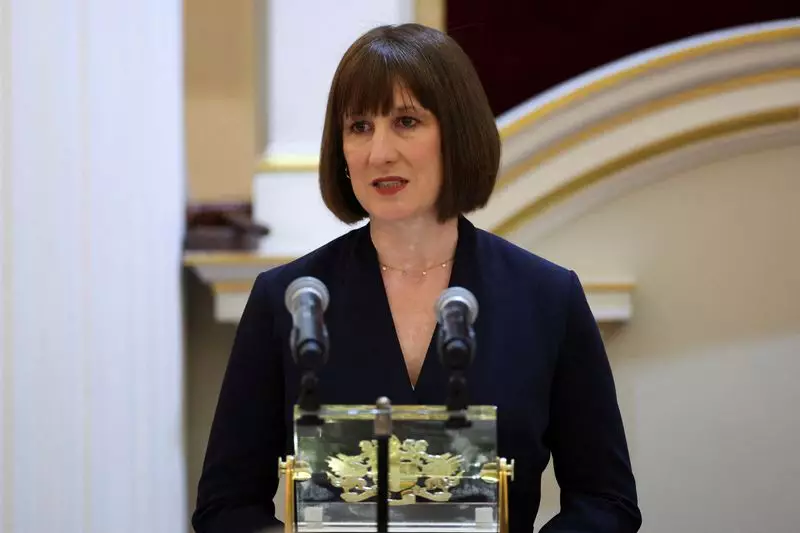Britain’s economic landscape has recently been marred by rising government borrowing costs and a declining pound, leaving the newly elected government under Prime Minister Keir Starmer in a precarious position. As the finance minister, Rachel Reeves, attempts to address these challenges, the impacts of external factors—particularly those originating from the United States—appear to dominate the trajectory of market recovery. This article delves into the unfolding economic scenario, analyzing the government’s approach, the implications of U.S. policy decisions, and the pressures within Britain’s financial framework.
Fiscal Targets in a Challenging Environment
Reeves, during her visit to China, reaffirmed her commitment to adhering to strict fiscal rules designed to restore stability to the public finances. The government’s targets are substantial, particularly in light of soaring borrowing costs illustrated by rising gilt yields, which recently reached levels unseen since 1998. Meanwhile, the pound has depreciated markedly, reflecting waning confidence in Britain’s economic management.
Keir Starmer’s declaration of a “ruthless” approach to budget repair underscores the urgency of the situation. However, the previous Conservative administrations have come under fire for their role in creating an unstable economic foundation, compounded by the aftermath of Brexit and the controversial mini-budget orchestrated by Liz Truss in 2022. Reeves faces the herculean task of not only repairing the economy but also justifying her strategic decisions to the Labour Party members and the electorate, a balancing act further complicated by limited viable options.
Short-Term Solutions and Long-Term Strategies
Reeves’ pathway appears fraught with potential pitfalls, particularly if she deviates from established fiscal norms. The upcoming budget forecaster’s report in March could compel her to propose austerity measures or spur additional spending cuts, risking backlash from within her own party. Recent hikes in social security contributions have already stoked discontent among the business community, which may render further tax increases politically untenable.
In the near future, Reeves is set to outline more extensive economic growth strategies, yet many projections suggest that any meaningful recovery may not surface until the 2030s. The implications of such delayed impacts raise serious concerns over whether the government can sustain public confidence and economic momentum in the interim.
As Reeves steers her economic policies, the unpredictability of U.S. President-elect Donald Trump’s trade policies looms large. His potential imposition of additional tariffs is likely to have significant ramifications, exacerbating inflation in the United States and influencing global financial markets. British debt, often closely linked to U.S. Treasury yields, risks remaining volatile if Trump’s administration follows through with protectionist measures. This interconnectedness highlights a troubling dependence on external factors that may upend any domestic recovery plans.
Moreover, the shift in the nature of foreign ownership of British government bonds complicates the fiscal landscape. Once dominated by local pension and insurance funds, a considerable percentage of bonds are now being purchased by foreign hedge funds, leading to greater volatility. As Deutsche Bank’s chief UK economist notes, this transformation has resulted in a market that is less stable and more susceptible to fluctuations, especially amidst international policy shifts.
Adding further complexity to the economic equation is the Bank of England’s (BoE) impending policy decisions. Current investor sentiment indicates a gradual easing of interest rates, yet inflationary pressures remain a substantial concern. The BoE must navigate a narrow path between stimulating growth and controlling inflation, a task made more daunting by the resilient labor market and external economic conditions.
Fiscal economists, like Ben Zaranko from the Institute for Fiscal Studies, suggest Reeves should avoid drastic short-term measures that could be perceived as panic-stricken or reactive. Instead, the focus should remain on coherent, well-structured long-term strategies to foster economic recovery without sacrificing fiscal discipline.
As Britain grapples with rising debt, a faltering pound, and external pressures, finance minister Rachel Reeves stands at a critical juncture. The interplay between domestic policy decisions and global economic shifts creates a uniquely challenging environment, where immediate solutions seem elusive. The outcome of these various pressures will likely determine the future of Starmer’s government and, more broadly, Britain’s economic stability in the months and years to come. The path forward must be navigated carefully, with an eye towards both fiscal responsibility and the delicate balance of public sentiment, to foster a resilient economic framework that can withstand inevitable fluctuations in global markets.

